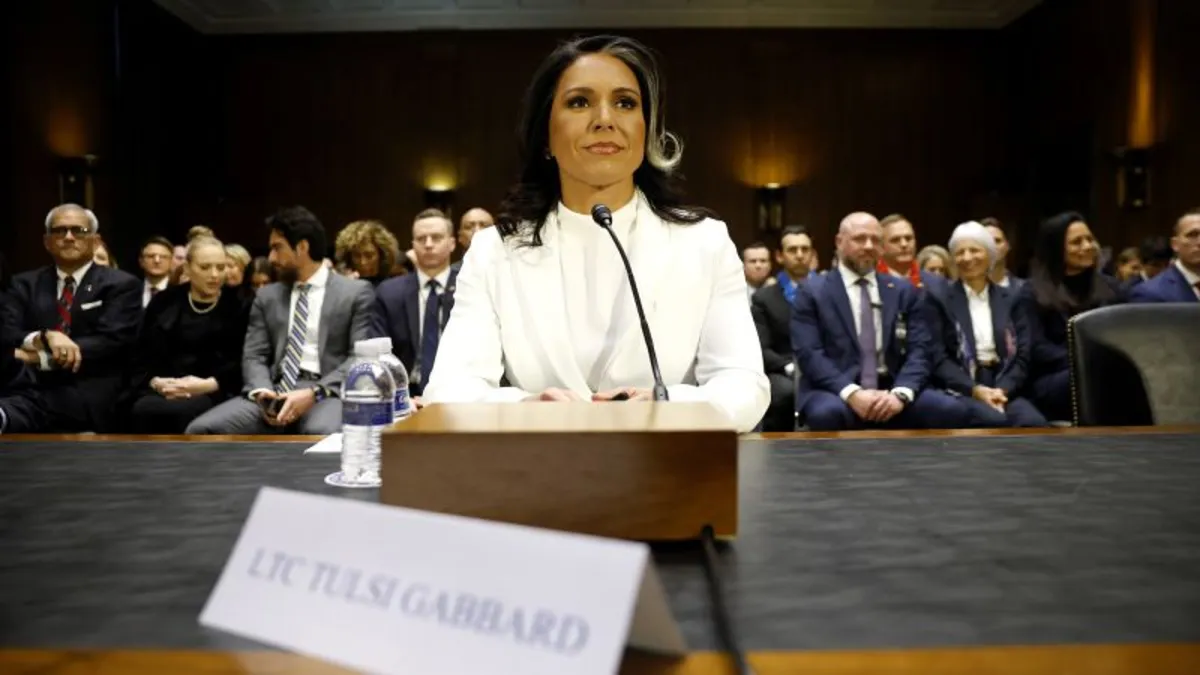
In a significant victory for President Donald Trump, the Senate voted on Wednesday to confirm former Democratic Representative Tulsi Gabbard as the Director of National Intelligence. Gabbard's confirmation was one of Trump's most controversial Cabinet nominations, passing with a vote of 52-48, primarily along party lines. Notably, Republican Senator Mitch McConnell of Kentucky joined Democrats in opposing her confirmation.
Tulsi Gabbard's nomination faced opposition due to her positions on several key issues. Concerns were raised over her lack of support for Ukraine, her shifting stance on the Foreign Intelligence Surveillance Act (FISA) Section 702, her 2017 meeting with former Syrian President Bashar al-Assad, and her past support for Edward Snowden. Mitch McConnell highlighted these concerns, stating she has "a history of alarming lapses in judgment."
Despite the controversies, Gabbard received backing from crucial swing Republican senators, including Susan Collins of Maine, Lisa Murkowski of Alaska, and Todd Young of Indiana. Murkowski acknowledged her concerns but emphasized Gabbard's potential for independence and oversight in her new role.
Senate Majority Leader John Thune defended Gabbard's nomination, focusing on her military service and commitment to "right-size" the Office of the Director of National Intelligence. Thune praised Gabbard for identifying inefficiencies and redundancies, and noted her reaffirmed support for FISA Section 702, a crucial surveillance tool.
Gabbard's confirmation process was marked by intense scrutiny from the Senate Intelligence Committee. Lawmakers questioned her views on surveillance and controversial meetings held in 2017. During the hearings, Gabbard was reticent about labeling Snowden's actions as traitorous, which raised further doubts among committee members.
Despite initial skepticism, Gabbard managed to reassure lawmakers through a series of closed-door meetings. Her nomination ultimately passed the committee on a party-line vote, with GOP members expressing satisfaction with her clarified stance on Section 702.
Tulsi Gabbard is set to become the most markedly anti-surveillance official to lead the intelligence community in the post-9/11 era. Her previous critiques of the "national security state" have sparked questions about potential changes she might implement within American intelligence agencies. Gabbard's history of opposing the Patriot Act and advocating for reforms to FISA could signal a shift in intelligence operations.
This story has been updated to include additional developments regarding Gabbard's confirmation and the implications for U.S. intelligence policies.